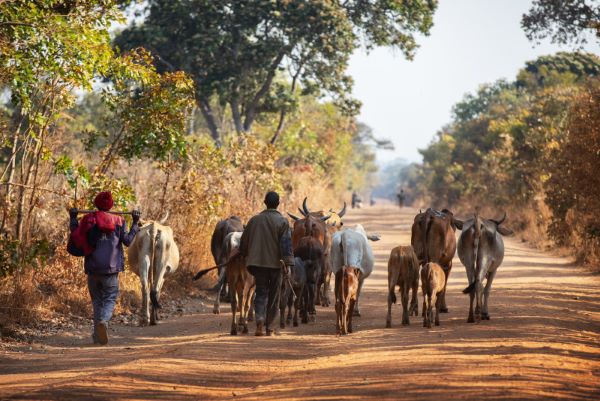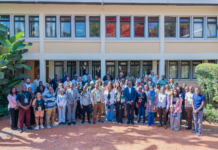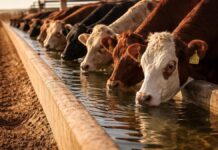Africa’s grasslands face increasing challenges from climate change, threatening the livelihoods of millions across the continent. Urgent action is needed to future-proof these ecosystems, according to a new commentary published by scientists from the Global Farm Platform.
Grasslands cover nearly half of Africa’s land area, provide crucial grazing for livestock—an economic cornerstone for over 70% of rural African populations. However, changing weather patterns and overgrazing are pushing these ecosystems to the brink, jeopardising both the environment and food security.
As human populations grow, large swathes of land are being converted for agricultural use, while the remaining grasslands are often overgrazed. This intensifies soil degradation, and climate change only worsens the situation. Extreme weather events like floods and droughts, coupled with invasive species and bush encroachment, are eroding the productivity and health of these ecosystems. The result? Reduced forage quality, higher livestock mortality rates, and rising vulnerability to disease, all of which undermine food security across the region.
To counter these growing threats, the authors are advocating for the increased adoption of sustainable grassland management practices, with a key focus on multispecies swards—an approach that could help restore productivity, reduce environmental harm, and mitigate climate change impacts. These mixtures of grass, legumes, and herbs are designed to enhance biodiversity, improve soil health, and increase resilience to climate-related stresses.
The concept of sustainable intensification, which calls for producing more food with less environmental damage, is at the heart of this approach. Research in temperate regions has shown that multispecies swards offer benefits such as improved forage yields, greater resource use efficiency, and better resistance to pests and diseases.
However, despite their success in other parts of the world, research on multispecies swards in Africa remains limited. Most studies on the continent have focused on monocultures or binary mixtures, leaving a gap in understanding how these complex plant mixtures might thrive in African conditions.
“We are calling for greater investment in reseeding Africa’s grasslands with more diverse species, which could help reverse land degradation while improving both ecological and economic outcomes,” said Rothamsted’s Dr Theo Akpensuen, the lead author of the commentary. “For instance, deep-rooted plants within these mixtures can access water deep underground during dry periods, while shallow-rooted species thrive after rainfall, enhancing productivity during all weather conditions.”
The ecological benefits of multispecies swards extend beyond drought tolerance. They can improve water retention, reduce soil erosion, and enhance biodiversity. Legumes particularly enrich the soil by fixing nitrogen, reducing the need for synthetic fertilizers and promoting healthier ecosystems. In addition, these mixed grasslands can boost animal health and productivity by providing higher-quality forage, which is essential for the region’s livestock.
The authors emphasize that with the right policies and investments, multispecies swards could play a crucial role in building climate resilience, enhancing food security, and improving livelihoods for millions of smallholder farmers across the continent. However, successful implementation depends on closing research gaps in areas like species selection, fertilization practices, and assessing the economic value of multispecies systems in particular regions.
“As Africa continues to grapple with the impacts of climate change, it is clear that sustainable and resilient grassland systems will be key to securing a prosperous future for its people,” said Dr Akpensuen.
Akpensuen, T.T., Cartmill, A.D., Pérez-Márquez, S. et al. Make African grasslands climate-change resilient. Commun Earth Environ 6, 111 (2025). https://doi.org/10.1038/s43247-025-02109-3
The Global Farm Platform uses a network of model farms to develop transformational solutions to challenges confronting sustainable ruminant production and promote their adoption. This multidisciplinary international network provides a unique combination of research and practice for diverse ruminant production systems in a wide range of cultural, socioeconomic and climatic zones.








